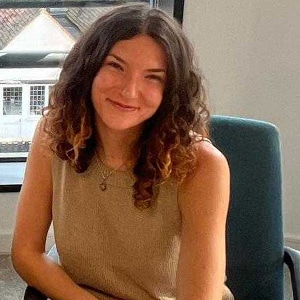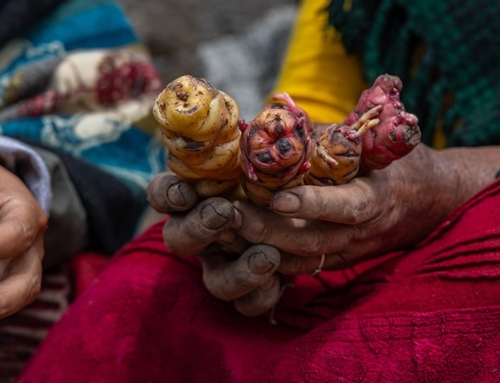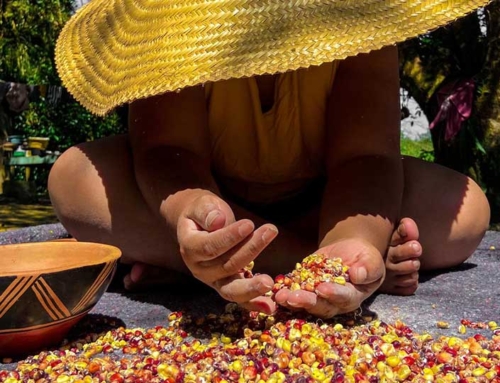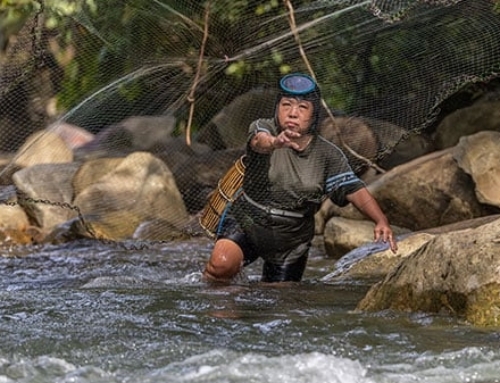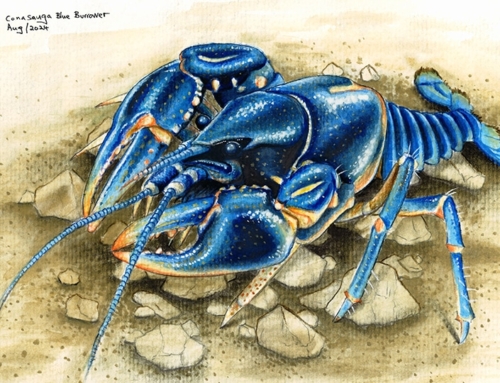Ecuador is the only country which recognises nature’s right to exist and thrive in its constitution. It is one of the most biodiverse countries in the world, and Indigenous Peoples have stewarded its lands and waters since time immemorial. However, the communities closest to and most dependent on Ecuador’s precious nature are still fighting to protect it.
Here are three stories told by Indigenous people standing up for Ecuador’s rivers, shared at a recent online event about the work supported by our Freshwater Programme.
Wider Anderson Guaramag Umenda
Wider Anderson Guaramag Umenda belongs to a community in north Ecuador’s Sucumbíos province at the root of the Andes. He is a member of the Cofán Indigenous group and current president of the Sinangoe Community living along the Aguarico River.
Our ancestors were here way before us and the creation of the Ecuadorian state. They lived free from the pollution and threats that would one day affect our lives.
Colonisation has led to many different threats: the degradation of our territory, poaching, illegal fishing, and gold mining. But our ancestors protected our territory and ways of life and these acts of resistance continue today.
We have a very close relationship with the river. The ways we live alongside our territories give us our medicine, our food, and our identity. States and government do not understand this culture – they perceive territories as places to extract resources.
In 2018, we fought against mining companies present in our territory without permission. Despite achieving victory in the courts, the threats continue, so we have had to create Indigenous Guards to protect lands that are being invaded.
Indigenous Peoples and local communities are the best guardians of our territories because we know the biodiversity, the rivers, and the forest. We see the territory as part of ourselves. That is why we take care of it. That is why we advocate for it.
We are thankful for support that we’ve received from different organisations – at all levels, it’s been invaluable.
Alexis Grefa
Alexis Grefa is a young leader from the Indigenous Kichwa group on the riverbanks of the Piatua River in the Ecuadorian Amazon, and a member of the Piatua Resiste collective.

Alexis Grefa © Piatua Resiste
In 2018 we created Piatua Resiste, a group of young people fighting on a daily basis for our river. We mobilised our community to demand the removal of a hydropower plant which was planned without the necessary permits or an environmental assessment, claiming that there would be no consequences to Indigenous Peoples or biodiversity.
Starting a legal process, we gathered the knowledge of our leaders to wage a powerful war. By combining the wisdom of our territories and our ancestors with scientific knowledge, we have named new species to science – species unique to our lands which have been living here for many years, but had no official record. But if we’re not protected – if we can’t defend our territory – we cannot protect them.
We support communities legalising their territories because many are threatened by large companies joining the carbon market. In doing this, we have collected toys, clothes, and cave paintings which prove that our families have been here for many, many years.
We’ve won cases, but the government has not complied with the terms of these victories. However, by communicating our efforts, we can convey the messages we need the international community and decision-makers to hear.

Alexis Grefa © Leandro Justen/Atmos
International exposure brings about change, not only for our peoples, but for the world as a whole.
We leave you with a message from the Piatua, our community: We want to be in peace and harmony with nature. We want territories that are free from extraction, where we decide ourselves how we want to live. We want to preserve a river that is clean and free from pollution.
We are not going to allow anyone to destroy our territory. But we need the international community to take action – we need to trigger collective, global change.
Helena Gualinga
Helena Gualinga is an Indigenous rights defender from the Kichwa Sarayaku community and a New York University Climate Litigation Accelerator Fellow.
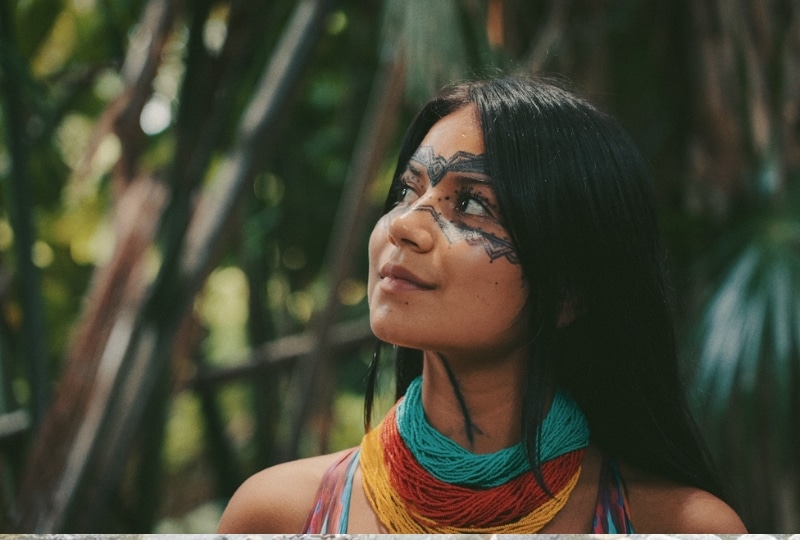
Helena Gualinga © Anka Maldonado
In the Ecuadorian Amazon, the most efficient mechanism of protection is Indigenous custodianship.
There is huge pressure from extractive fronts, from both legal and illegal mining, oil, and hydroelectric power dams. National policies are accelerating this expansion into the Ecuadorian Amazon and the mountains, where all the water here comes from.
As people are completely dependent on our water systems and the health of our water, we must address these threats: if it’s affected there, we’re in a really bad situation down here.
It’s extremely important that those on the land are not only speaking up, but that their voices are amplified. If they’re voicing these concerns, and no one’s listening to them, they are more vulnerable to threats and attacks that unfortunately, do still take place in Ecuador.
We’re really concerned about safety – people are literally putting their body on the lines to defend their territories.
Land defenders are being criminalised. They are called terrorists simply for opposing mining projects – they’re called anti-development, anti-country. This problem is putting the land and the forest in danger, but first of all, it’s putting our people in danger.
Through the youth collective ‘, we’re targeting companies and governments. In this moment, we could still stop a lot of projects and work on solutions. But we have a lot on our plate. Supporting young people and Indigenous leaders directly on the ground is more important than ever.
Our Freshwater Programme focuses on solutions that are led by Indigenous Peoples and local communities.
If you are interested in supporting this work, please get in touch.


